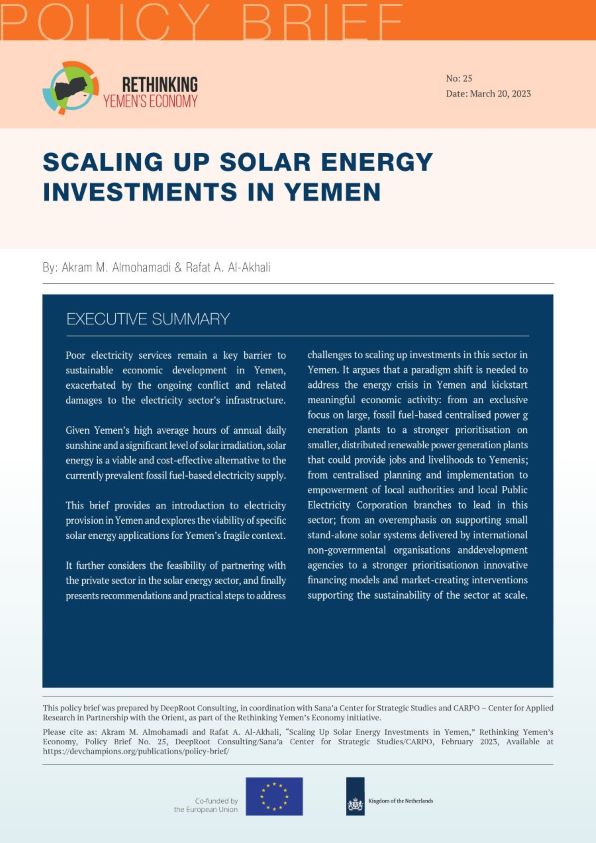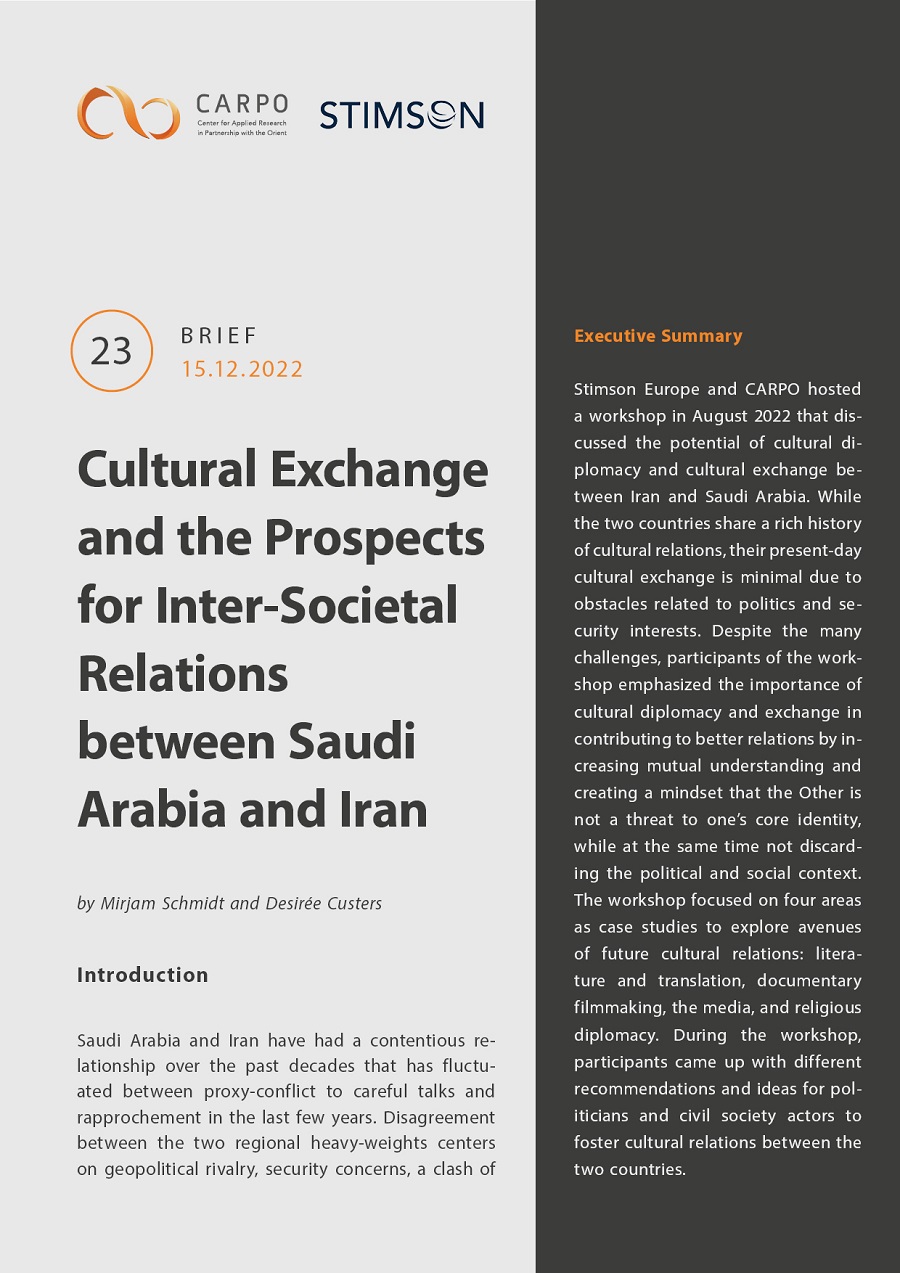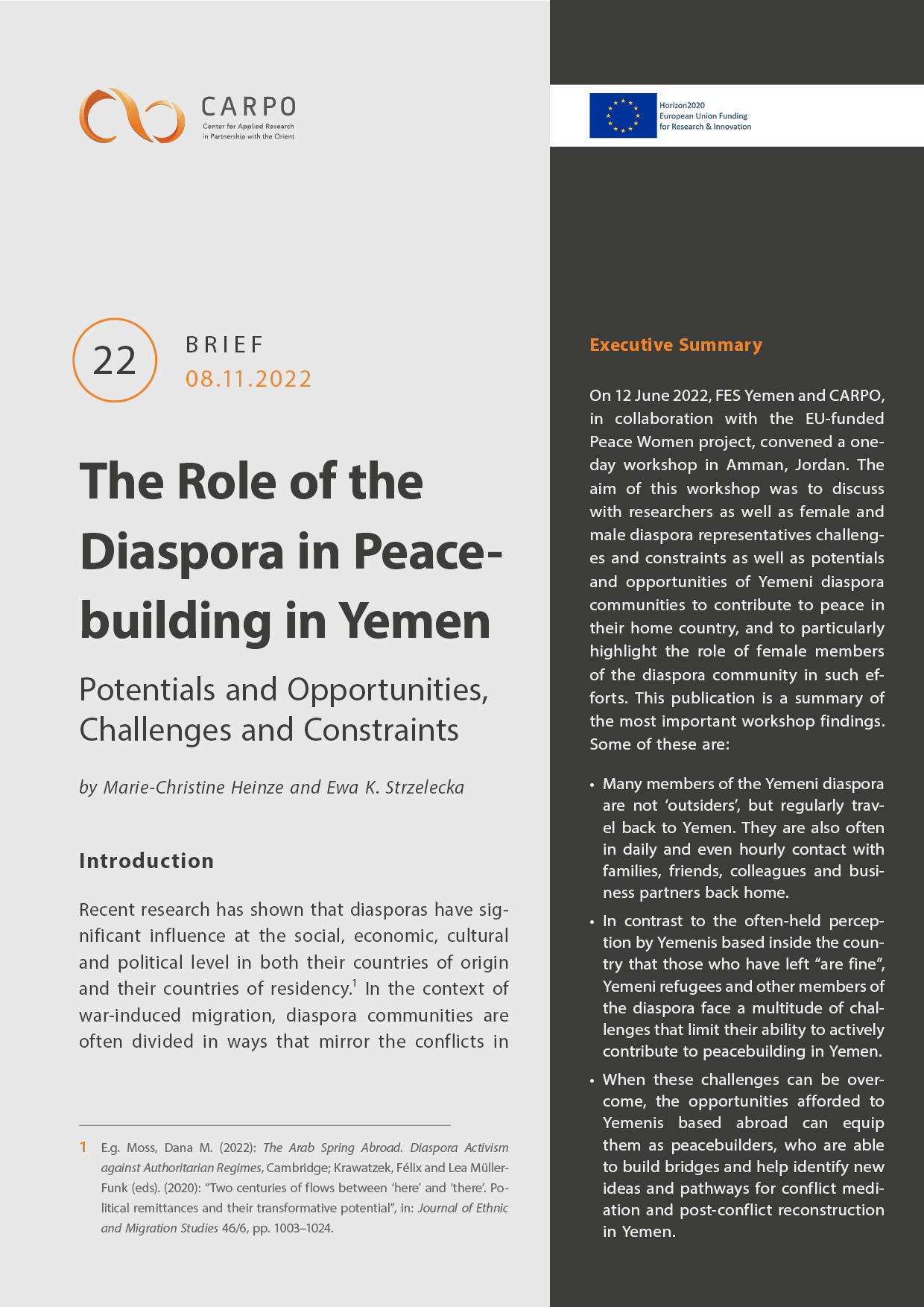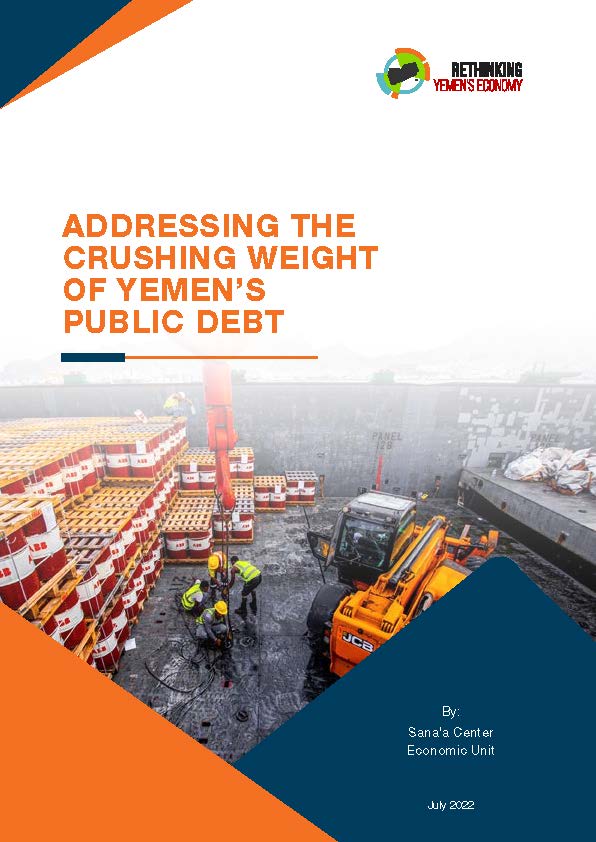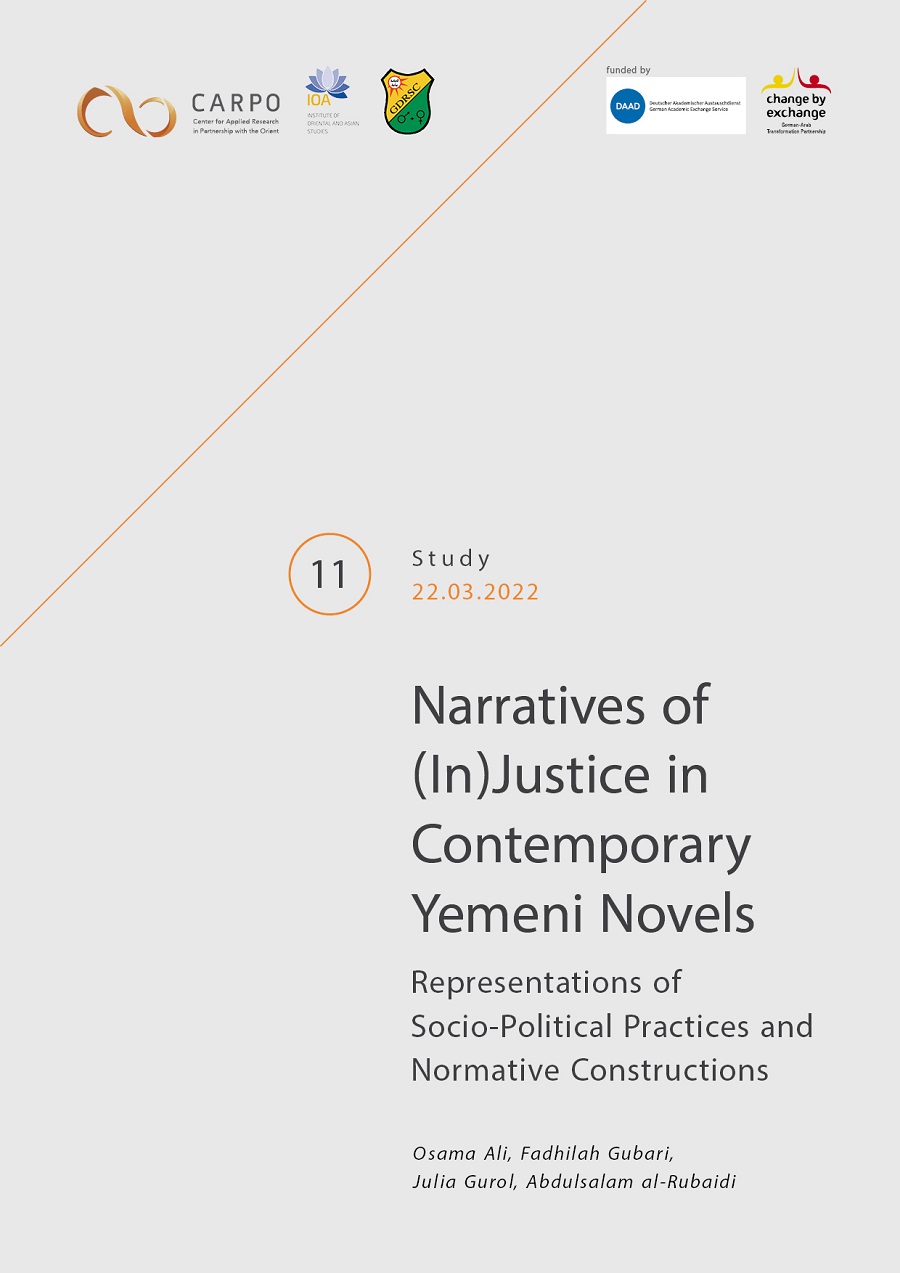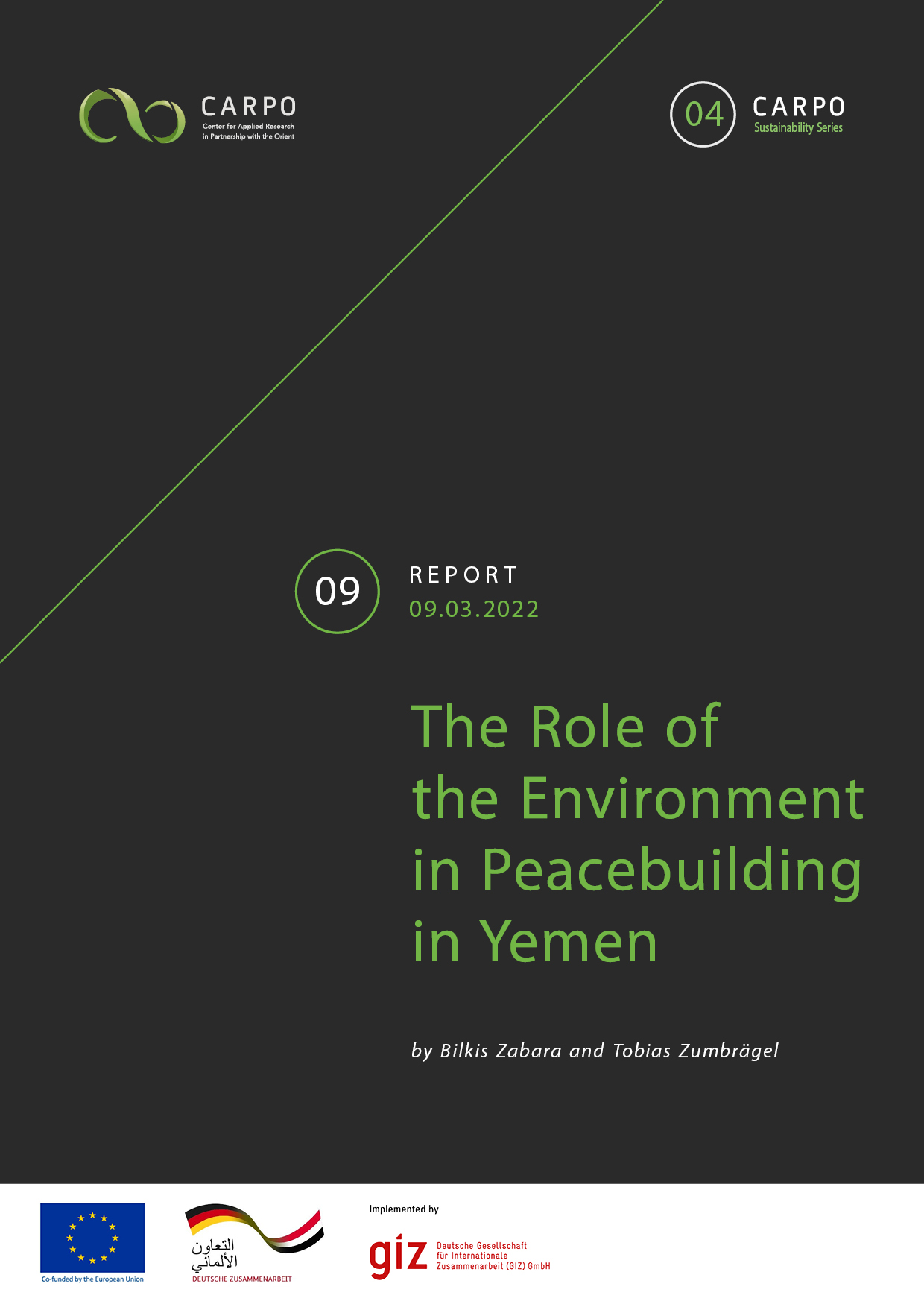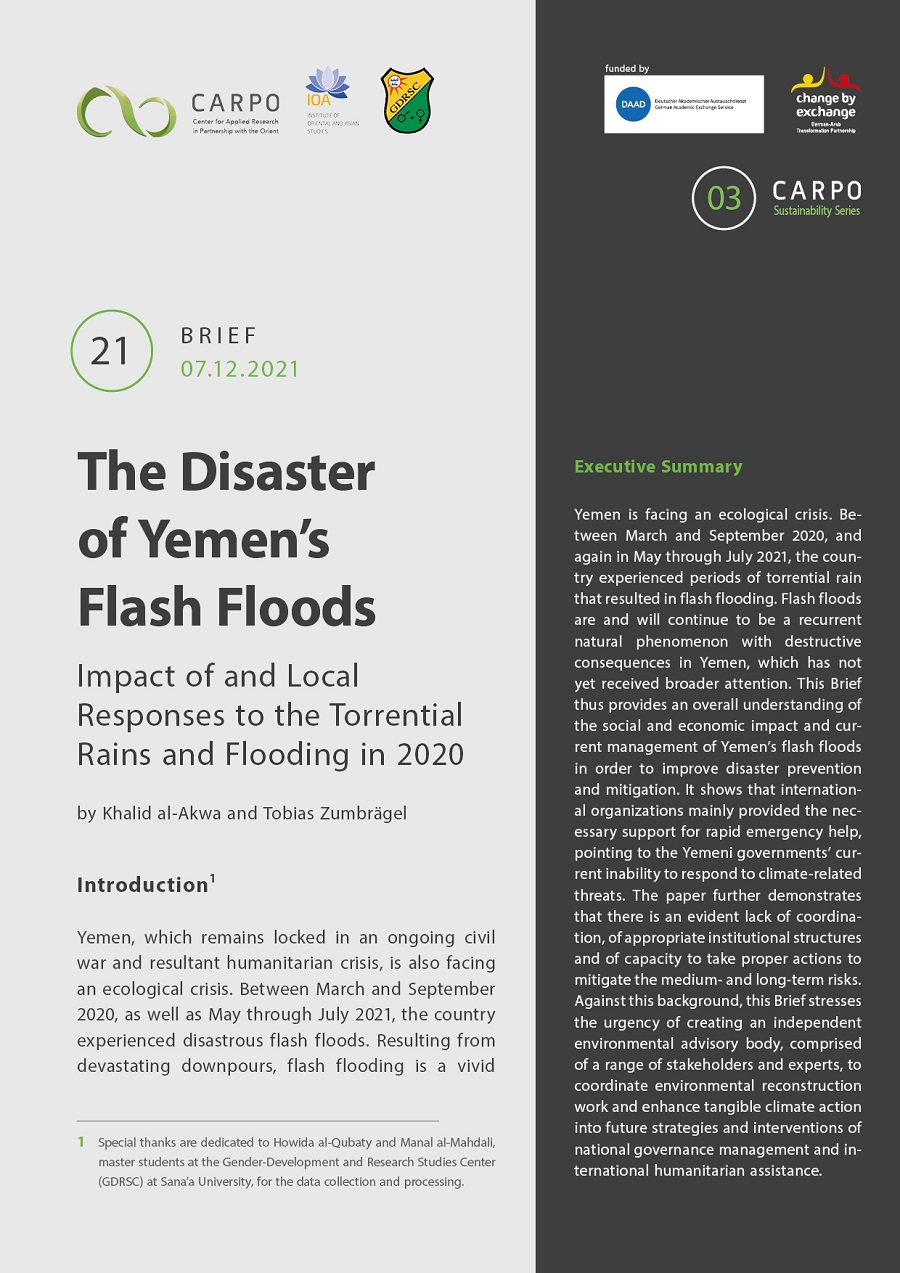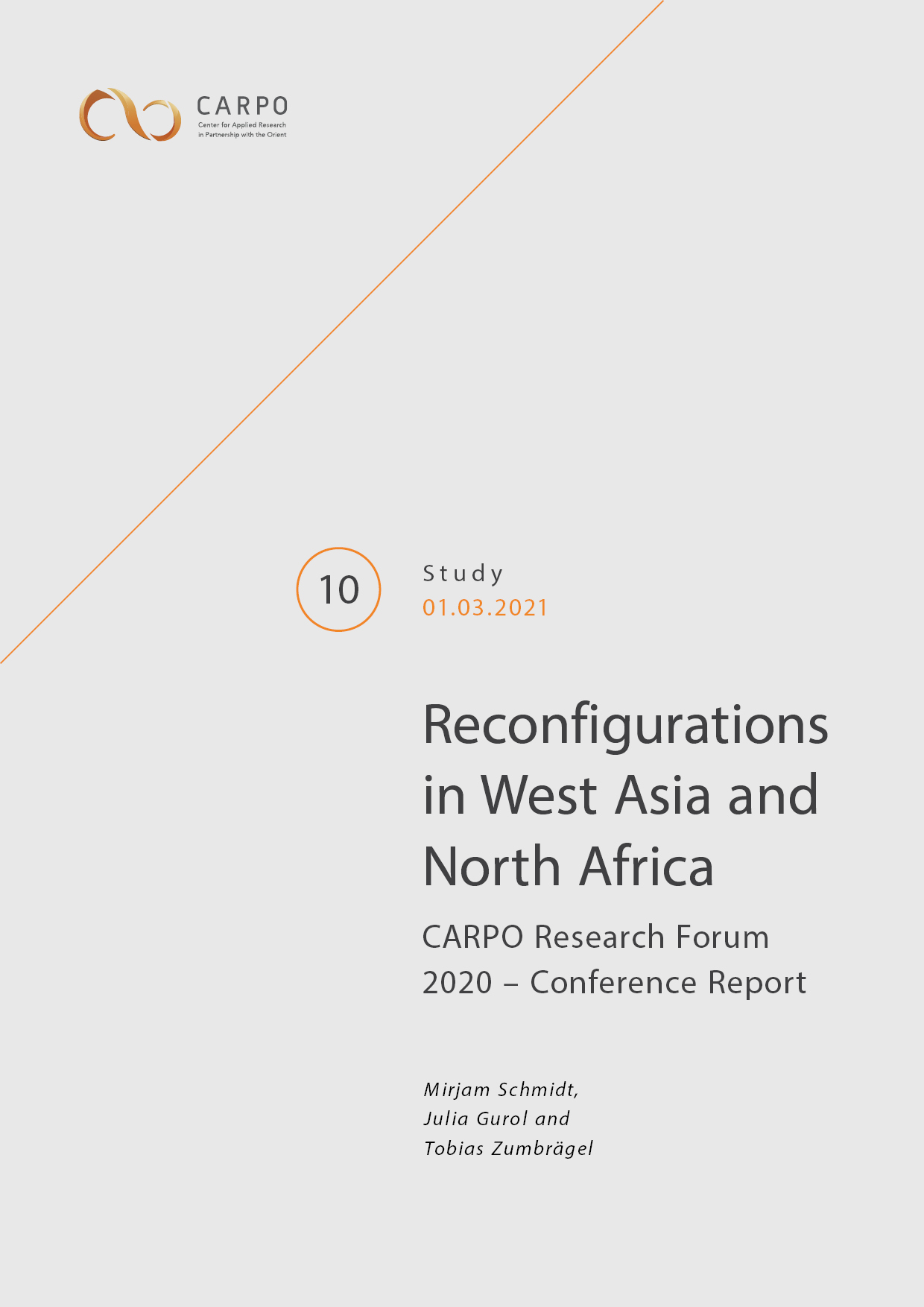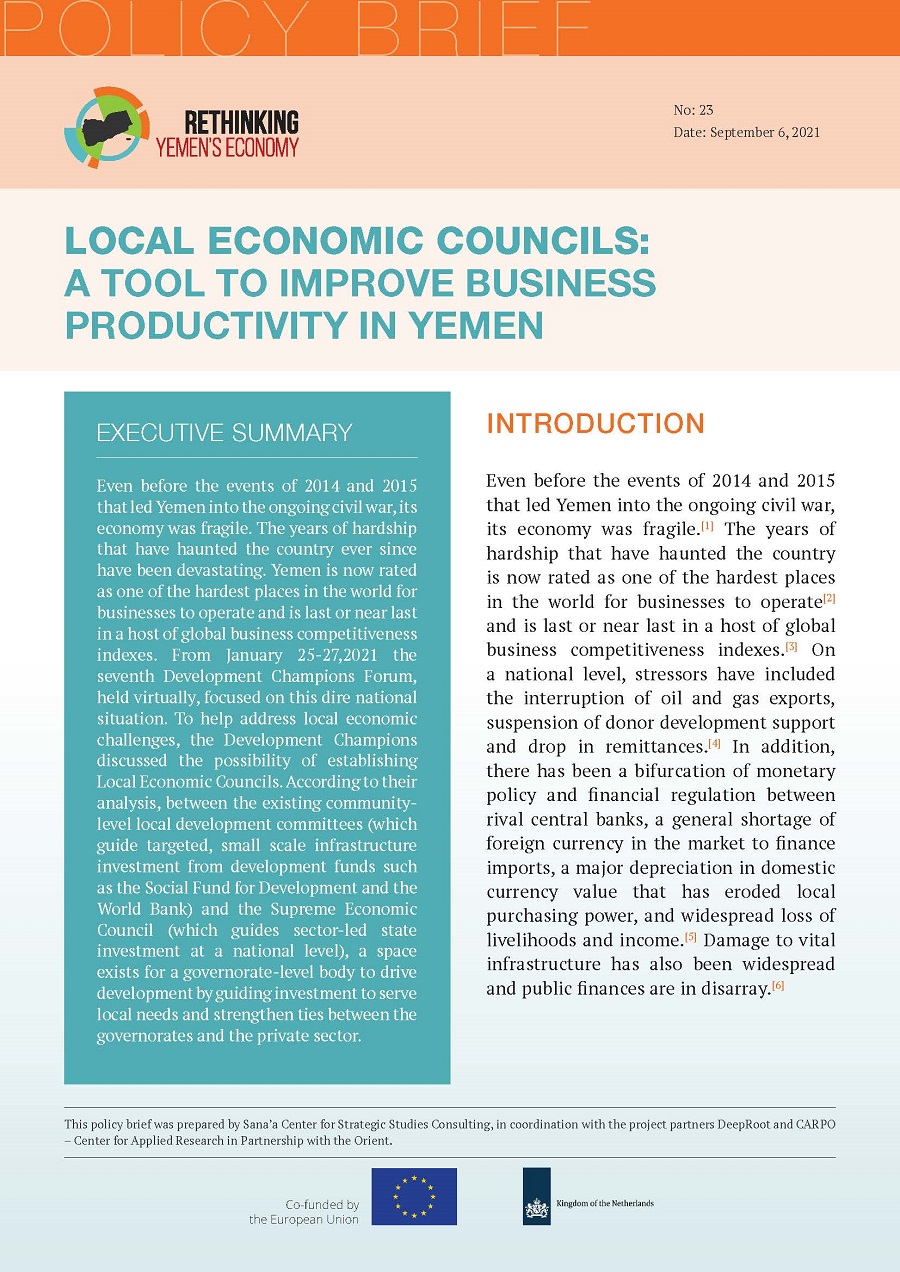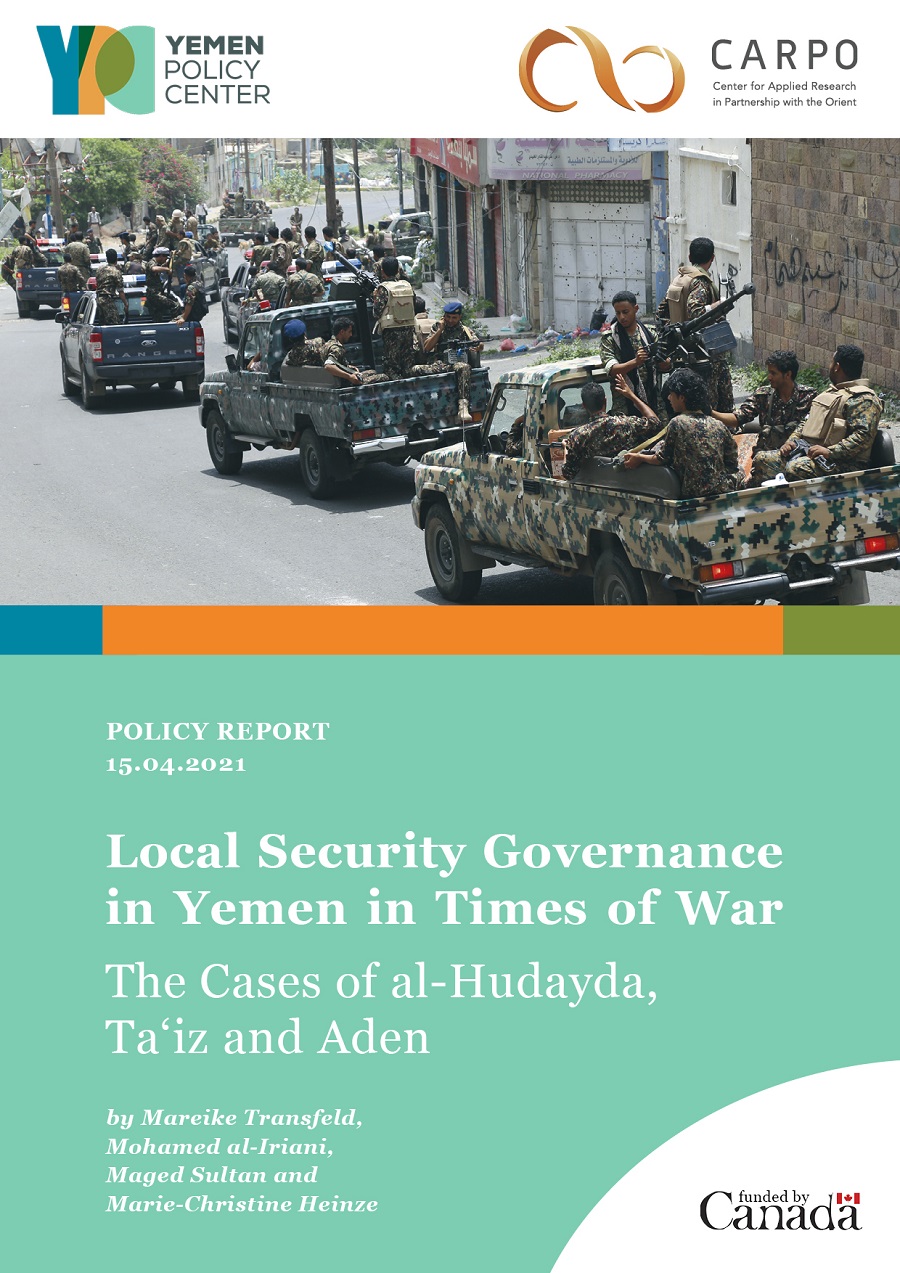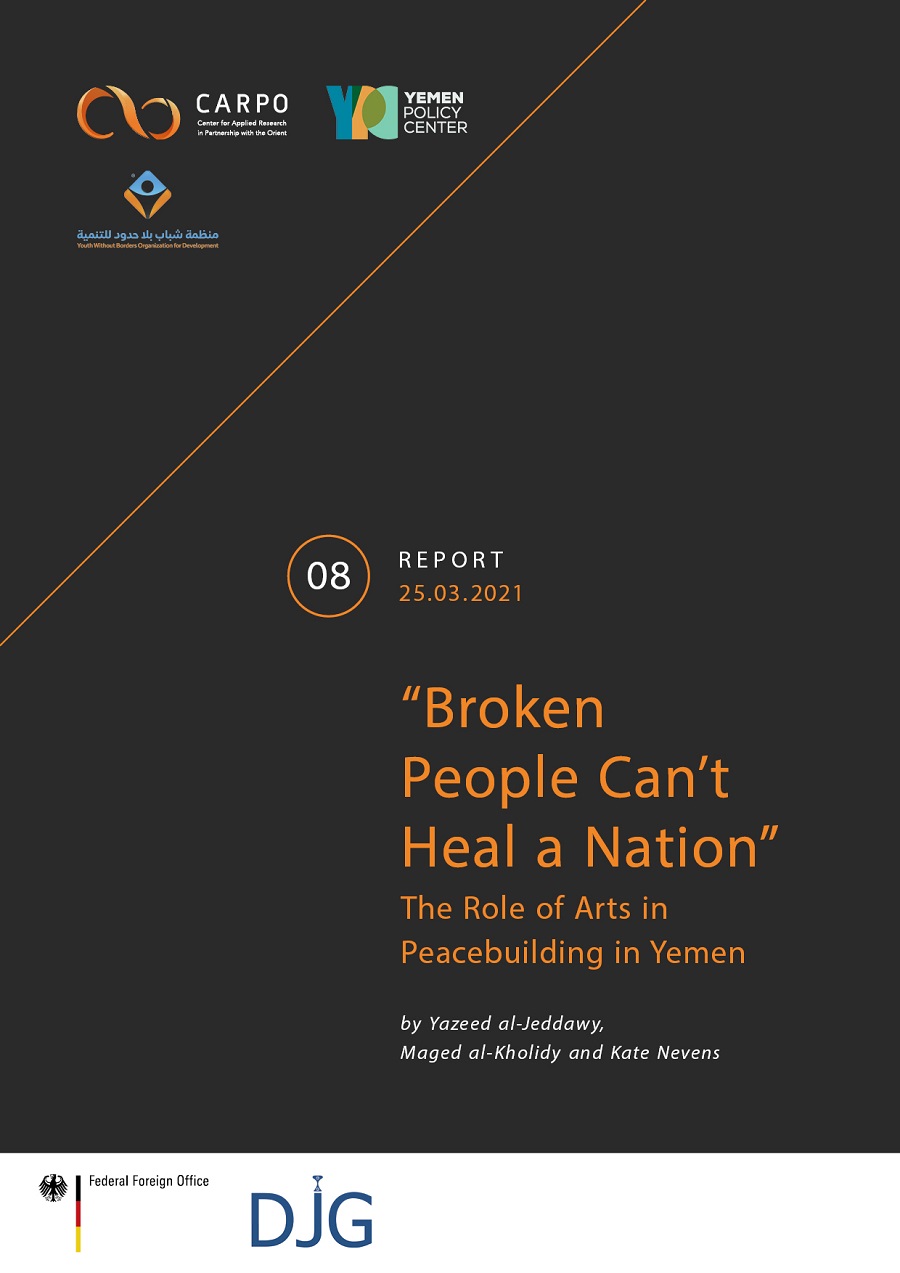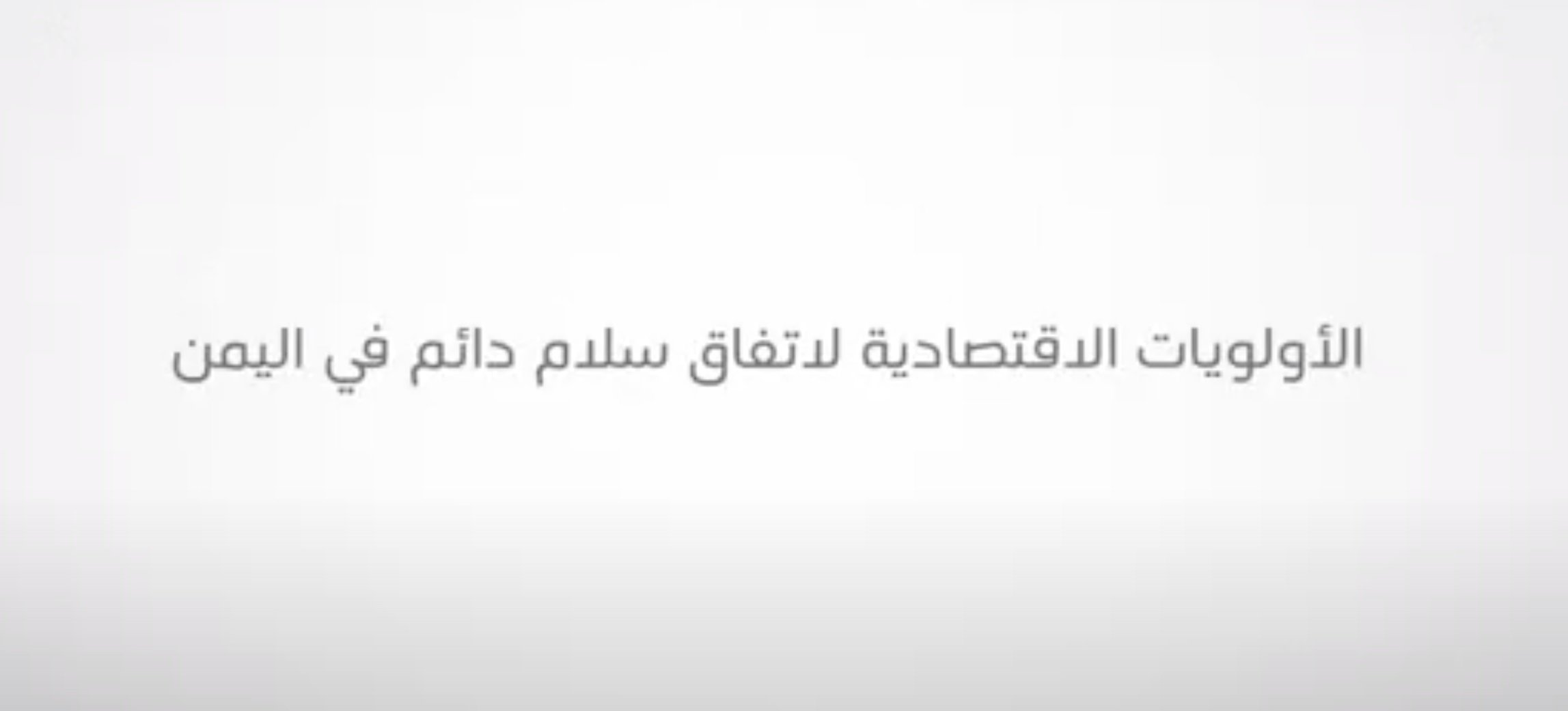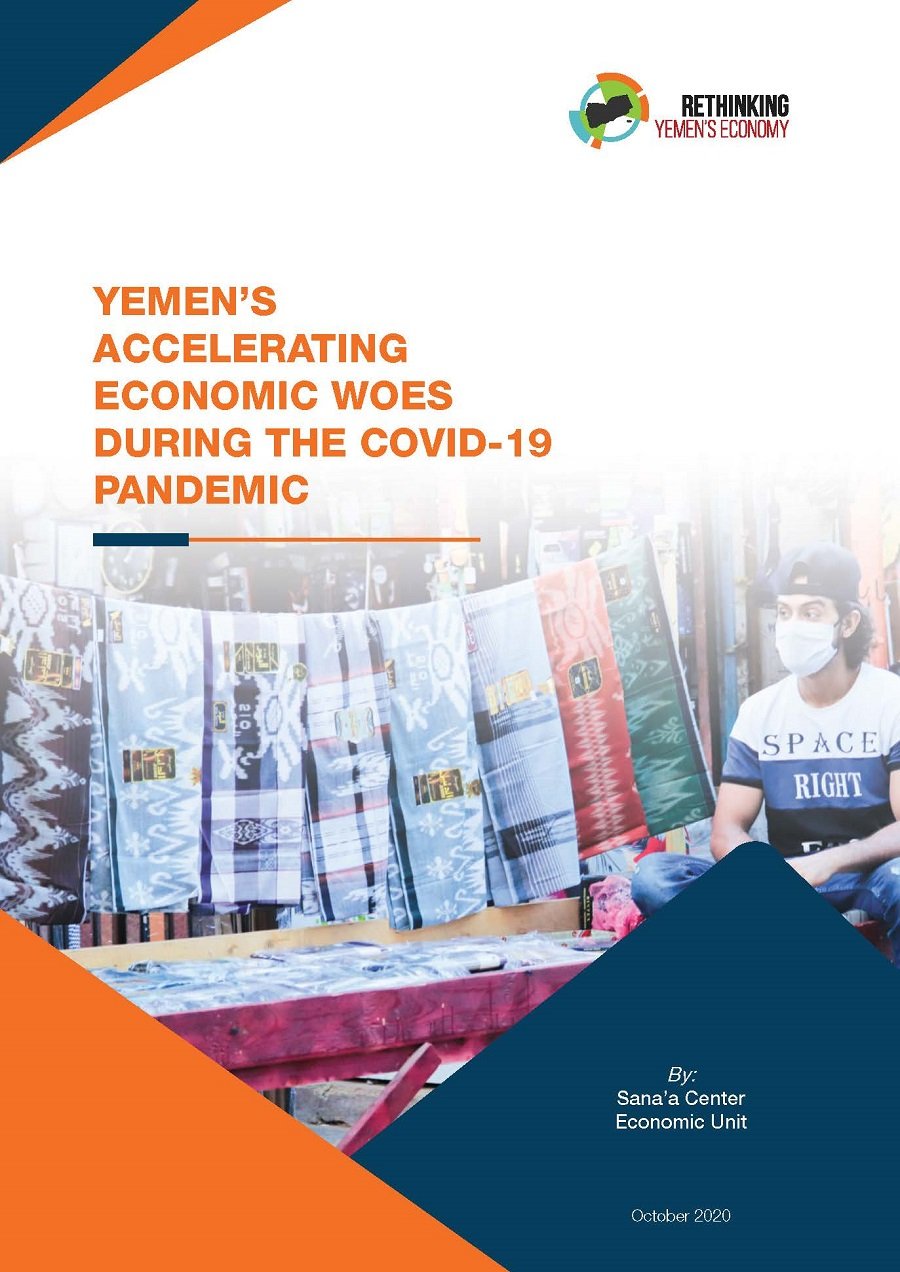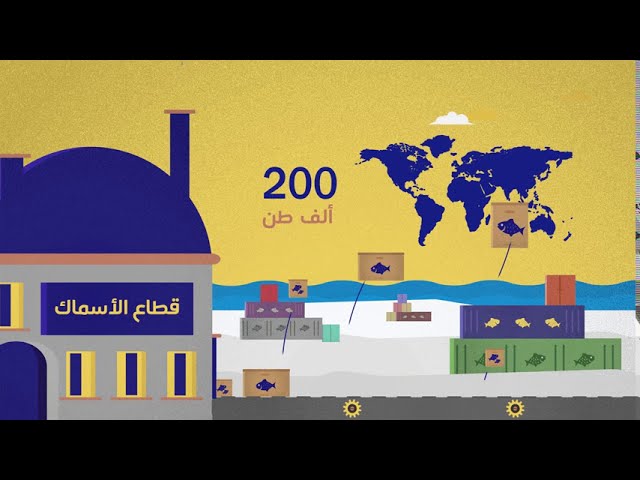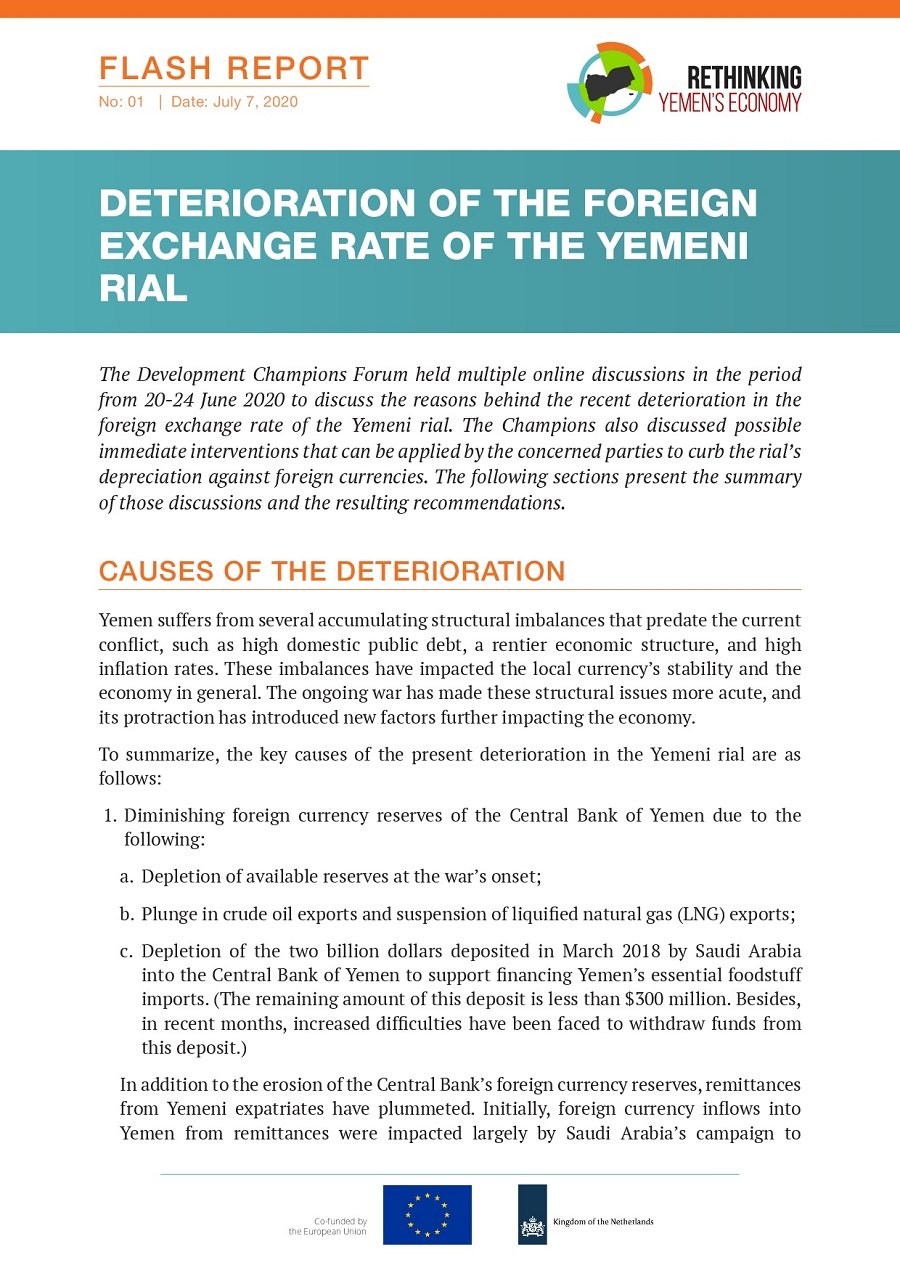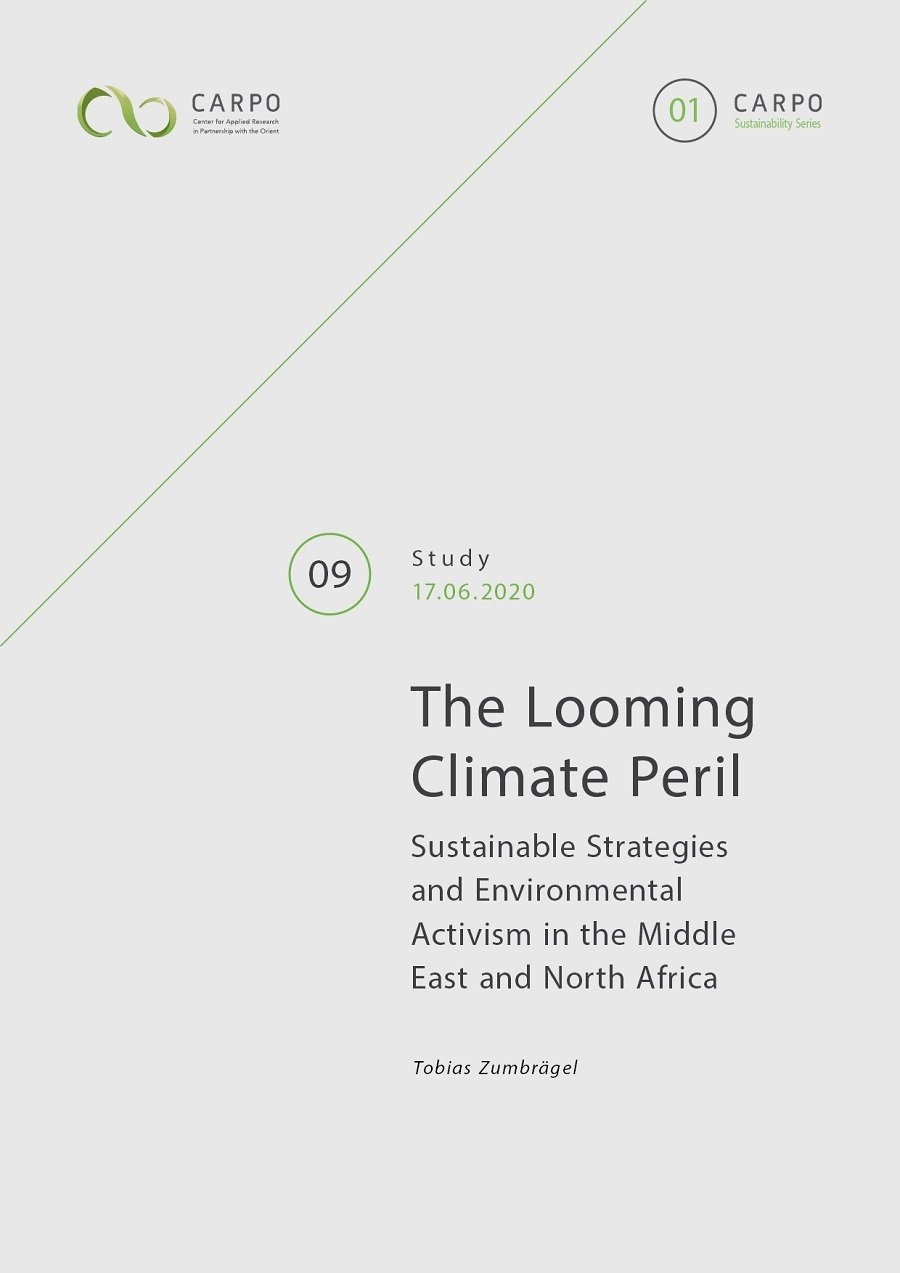Yemen’s agricultural communities face a perfect storm of growing ecological threats amid protracted conflict. Flash floods destroy farms, crops, and irrigation systems. Late rains risk drowning mature harvests, and waterlogged fields hinder root growth. Coastal areas battle salinization, and collapsed roads and buried wells hamper recovery. As flooding and changing rainfall patterns undermine yields, farmers […]
Read more...Category: Publications
Empowering Local Authorities to Lead Economic Development in Yemen
This RYE Policy Brief, which is based on discussions the Development Champions Forum held in Cairo in December 2023, outlines a set of recommendations aimed at empowering local authorities in Yemen to effectively provide services and lead local economic development. The aim is to analyze and draw lessons from three ongoing tracks that seek to […]
Read more...Challenges to Yemen’s Public Revenues
Since April 2022, the war in Yemen has mutated from a high-casualty conflict to a protracted stalemate with relatively stable frontlines. The current phase has been marked by the expansion of economic warfare, with the Houthi authorities shutting down trade from internationally recognized government-controlled areas, stoking discontent as public utilities break down and the currency […]
Read more...The ‘Climate-Energy-Health Nexus’
An Entry-Point for Environmental Cooperation in West Asia and the Arabian Peninsula by Sina Winkel and Sebastian Sons Based on insights obtained through the Tafahum wa Tabadul project, the authors discuss how recent geopolitical dynamics in West Asia and the Arabian Peninsula may pave the way towards cross-border environmental engagement on an inclusive political, academic, […]
Read more...Energy Injustice and Its Role for Environmental Peacebuilding
Ahmad Al-Wadaey, Tobias Zumbrägel and Ali Alamudi This Report discusses the crucial but understudied impact of oil extraction industries on local communities and the environment in Yemen’s Hadhramawt governorate. By combining conceptual approaches of energy justice and the environmental peacebuilding literature, it provides a novel perspective on how environmental pollution via the oil industry in […]
Read more...Zooming in on the Yemen War. The Future of Warfare and Human Rights in the Middle East
Missiles, drones, precision-guided munition, and other military technologies that enable belligerents to attack their enemies from a distance are changing the concepts and practices of warfare. This can best be observed in the conflict-ridden region of the Middle East, particularly in the Yemen war, which has witnessed one of the most extensive use of missiles […]
Read more...China, Corona, Climate Change – Three Gamechangers for the Arab Gulf States
by Stefan Lukas and Sebastian Sons This CARPO Report analyzes how the Corona pandemic, China and climate change are acting as major gamechangers for the Arab Gulf States, reshuffling old geopolitical, economic and social structures. These new developments in the region also mean that European players will have to come up with new strategies if […]
Read more...Research Cooperation with the ‘Global South’ [in German]
by Sarah Wessel This CARPO Report outlines the critical debate about the ‘Global South’, the effect of unequal distribution in the emergence, generation and acceptance of specific knowledge regimes as well as central challenges in cooperation with sometimes politically sensitive and crisis-ridden contexts. The concluding recommendations for research institutions, funding organizations and politics encourage a debate […]
Read more...Scaling Up Solar Energy Investments in Yemen
Poor electricity services remain a key barrier to sustainable economic development in Yemen, exacerbated by the ongoing conflict and related damages to the electricity sector’s infrastructure. Given Yemen’s high average hours of annual daily sunshine and a significant level of solar irradiation, solar energy is a viable and cost-effective alternative to the currently prevalent fossil […]
Read more...Cultural Exchange and the Prospects for Inter-Societal Relations between Saudi Arabia and Iran
by Mirjam Schmidt and Desirée Custers In August 2022, CARPO and Stimson Europe hosted a workshop looking into the potential of cultural diplomacy and cultural exchange between Iran and Saudi Arabia. While the two countries share a rich history of cultural relations, their present-day cultural exchange is minimal due to geopolitical differences. But in spite […]
Read more...The Role of the Diaspora in Peacebuilding in Yemen. Potentials and Opportunities, Challenges and Constraints
by Marie-Christine Heinze and Ewa K. Strzelecka On 12 June 2022, FES Yemen and CARPO, in collaboration with the EU-funded Peace Women project, convened a one-day workshop in Amman, Jordan. The aim of this workshop was to discuss with researchers as well as female and male diaspora representatives challenges and constraints as well as potentials […]
Read more...CARPO Podcast Folge 7: Menschenrechte und Realpolitik – eine politische Antwort auf die WM
mit Lamya Kaddor Der russische Angriffskrieg gegen die Ukraine hat in Deutschland die Frage, wie die deutsche Außenpolitik mit autoritären Regimen umgehen sollte, zu einem zentralen Thema der öffentlichen und politischen Debatte werden lassen. Vor dem Hintergrund der notwendigen Energiediversifizierung wurden mit Katar und anderen Golfmonarchien Energiepartnerschaften geschlossen, um sich aus der Abhängigkeit von russischen […]
Read more...CARPO Podcast Folge 6: Frauen und Sport in den Golfstaaten
mit Anna Reuß Mit Blick auf den Austragungsstaat der WM 2022 fallen nicht nur die Menschenrechtsverletzungen gegenüber den Arbeitsmigrant:innen ins Auge. Auch die Rolle der Frauen in der katarischen Gesellschaft wird international kontrovers diskutiert. Anna Reuß berichtet in dieser Folge über die Lage der Frauen in Katar und in anderen Ländern der Region und ob […]
Read more...CARPO Podcast Folge 5: Eine “grüne” WM? Katar und die Nachhaltigkeit
mit Tobias Zumbrägel In der 5. Folge sprechen wir mit CARPO-Researcher Tobias Zumbrägel, der sich intensiv mit der Umweltpolitik der Golfstaaten und der WM in Katar beschäftigt.Katar gewann auch deswegen die Bewerbung um die Fußball-WM, weil der Staat das erste klimaneutrale Turnier der Geschichte ausrichten wollte. Diese ehrgeizigen Ambitionen werden jedoch in Frage gestellt. Wir […]
Read more...CARPO Podcast Folge 4: Sport- und Fußballkultur in Saudi-Arabien und Iran
mit Simon Müller und Christoph Becker In der vierten Folge werfen wir einen Blick auf die Sport- und Fußballkultur in zwei weiteren Golfstaaten, Iran und Saudi-Arabien. In beiden Staaten sind Sport und Politik eng verwobene. Darüber sprechen wir mit Simon Müller, dem Geschäftsführer und Gründer der Firma SportsHub KSA, und dem Sportjournalisten Christoph Becker. Weitere […]
Read more...CARPO Podcast Folge 3: Die WM und die Menschenrechte
mit Katja Müller-Fahlbusch In der dritten Folge sprechen wir mit Katja Müller-Fahlbusch über die Situation der Menschenrechte in Katar. Keine andere internationale Sportveranstaltung hat die ausbeuterischen Verhältnisse von Arbeitsmigrant:innen so stark in den Mittelpunkt gerückt wie die Weltmeisterschaft in Katar. Katja Müller-Fahlbusch ordnet diese als Vertreterin von Amnesty International für uns ein. Weitere Informationen zur […]
Read more...CARPO Podcast Folge 2: Der Fußball und die Golfstaaten – zwischen Fankultur und Sportswashing
mit Leo Wiggert und Robert Chatterjee In unserer zweiten Folge beleuchten wir, warum Katar überhaupt eine WM ausrichtet, und sprechen außerdem mit den Journalisten Leo Wiggert und Robert Chatterjee vom Nahostmagazin zenith, die von ihrer Reise nach Katar und ihrer Suche nach der Fußballkultur vor Ort berichten. Weitere Anekdoten und Fakten über Katar als Fußballnation […]
Read more...CARPO Podcast Folge 1: Der Fußball und die arabische Welt – Protestkultur und Diktaturen
mit Ronny Blaschke In dieser Folge sprechen wir mit dem Sportjournalisten Ronny Blaschke, der sich seit zwei Jahrzehnten intensiv mit den Verstrickungen von Fußball und Politik, speziell in autokratischen Ländern des Mittleren Ostens, auseinandersetzt. Dabei wird deutlich: Fußball ist nicht nur ein politisches Instrument für die Herrscher, sondern kann auch Möglichkeiten des Protestes bieten. Mehr […]
Read more...CARPO Podcast Trailer: Katar 2022 – Mehr als eine WM
Addressing the Crushing Weight of Yemen’s Public Debt
For decades prior to the ongoing conflict, Yemen had been vulnerable to recurring budget deficits. The escalation of the ongoing conflict in 2014/15 has had a profoundly negative impact on Yemen’s debt position. Large-scale oil exports ceased, leading to a collapse in public revenues, while banks and pension funds stopped purchasing government debt instruments. Management […]
Read more...Narratives of (In)Justice in Contemporary Yemeni Novels
by Osama Ali, Fadhilah Gubari, Julia Gurol and Abdulsalam al-Rubaidi This Study analyzes narratives of (in)justice in contemporary Yemeni novels. Through a lexical field analysis of nine selected contemporary novels, the paper highlights how (in)justice is framed in narrative literature, both in terms of representations of certain socio-political practices and in terms of normative constructions […]
Read more...The Road Transport Sector in Yemen. Critical Issues and Priority Policies
Yemen is predominantly a rural country, with over 70% of the population living in 140,000 settlements in impoverished rural areas. Road transport is thus essential for the country’s development and overall economic growth. With only about 3,744km of paved rural roads, representing approximately 6.4% of all roads in the country, Yemen’s neglected road network poses […]
Read more...The Role of the Environment in Peacebuilding in Yemen
by Bilkis Zabara and Tobias Zumbrägel This Report addresses the relationship between violent conflict and environmental governance in Yemen. It translates the concept of environmental peacebuilding to the case of Yemen, where it has not received broader attention in terms of post-conflict reconstruction and reconciliation efforts. The study compares six different governorates, namely Sana’a, Dhamar, […]
Read more...Challenges and Prospects for Electronic Money and Payment Systems in Yemen
Yemen has a heavily cash-based economy with low levels of financial inclusion. The country’s formal banking sector is highly underdeveloped, undercapitalized and concentrated in urban areas, leaving it inaccessible for most Yemenis. Plans by the Central Bank of Yemen to develop and improve electronic interbank transactions and local electronic payment systems, including mobile money services, […]
Read more...The Disaster of Yemen’s Flash Floods. Impact of and Local Responses to the Torrential Rains and Flooding in 2020
by Khalid al-Akwa and Tobias Zumbrägel Between March and September 2020, and again in May through July 2021, Yemen experienced periods of torrential rain that resulted in flash flooding. Flash floods are and will continue to be a recurrent natural phenomenon with destructive consequences in Yemen, which has not yet received broader attention. This Brief […]
Read more...Improving Relations Between Central State Institutions and Local Authorities
Local councils are responsible for spearheading development projects and providing basic public services to Yemen’s population of more than 30 million people. The councils are particularly important in rural areas, where about 70 percent of Yemen’s population lives. In July 2018, the Rethinking Yemen’s Economy initiative published a White Paper that explored how the collapse […]
Read more...Reconfigurations in West Asia and North Africa. CARPO Research Forum 2020 – Conference Report
by Mirjam Schmidt, Julia Gurol and Tobias Zumbrägel The first CARPO Research Forum, which took place in November 2020, addressed the reconfigurations and challenges the WANA region is currently grappling with by selecting three major themes at the global, regional and local levels: It discussed the reconfigurations of external powers in the region with a […]
Read more...Local Economic Councils: A Tool to Improve Business Productivity in Yemen
From 25-27 January 2021, the seventh Development Champions Forum, held virtually, focused on the dire business environment in Yemen. To help address local economic challenges, the Development Champions discussed the possibility of establishing Local Economic Councils. According to their analysis, between the community-level local development committees and the Supreme Economic Council on the national level, […]
Read more...Priorities for the Recovery and Reform of the Electricity Sector in Yemen
Poor electricity services in Yemen, even before the war, have been one of the key barriers to sustainable economic development and basic service provision (e.g., water supply, health care, education). This paper assesses the power supply system status prior to the war and subsequently discusses the impact of the war on electricity sector performance, followed […]
Read more...Solar-Powered Irrigation in Yemen: Opportunities, Challenges and Policies
Yemen is one of the most water-scarce countries in the world. Its agricultural sector is the dominant user of groundwater resources, accounting for around 90 percent of total consumption. Due to the current crisis, fuel required for pumps has become scarce and very expensive; as a result, solar energy has begun to play a role […]
Read more...Local Security Governance in Yemen in Times of War
by Mareike Transfeld, Mohamed al-Iriani, Maged Sultan and Marie-Christine Heinze After six years of war, state institutions in Yemen have fragmented along multiple fault lines. The security sector is no exception. Given their role as central nodes of the country’s security governance structure, this Policy Report explores governorate-level Security Committees in three governorates that have […]
Read more...‘Broken People Can’t Heal a Nation.’ The Role of Arts in Peacebuilding in Yemen
by Yazeed al-Jeddawy, Maged al-Kholidy and Kate Nevens This Report looks at how the arts and peacebuilding have historically intersected in Yemen, and how traditional arts are alive today and are being used to promote peace and war. It demonstrates the variety of ways in which the arts promote and educate on the values of […]
Read more...Post COVID-19: A Potential for Green Recovery in the Arab Gulf States
by Aisha Al-Sarihi The novel coronavirus pandemic has disrupted the GCC’s focus on environmental sustainability projects, as shoring up economies and protecting human health have become top priorities for governmental countermeasures. This Brief argues that associating COVID-19 economic recovery packages with measures aimed to safeguard the environment and tackle climate change, towards a so-called ‘green […]
Read more...Impacts of the War on the Telecommunications Sector in Yemen
The telecommunications and information technology sector in Yemen is the second largest source of public revenue after the petroleum sector, and contributes important work opportunities, whether directly or indirectly, through its connections to other sectors of the national economy. Some of the most important challenges of the sector are the unsuitability of the legal and […]
Read more...Economic Priorities for a Sustainable Peace Agreement in Yemen
The Development Champions Forum stresses that the sustainability of a peace agreement in Yemen will, amongst others, depend on two critical insights: First, in a conflict that is largely over access to resources, the issues of distribution and control of those resources can make or break peace. Second, where peace agreements lack provisions that create […]
Read more...Yemen’s Accelerating Economic Woes during the COVID-19 Pandemic
Since early 2015, Yemen has been almost completely dependent on three external sources to secure foreign currency inflows and stimulate economic activity: foreign humanitarian aid, Saudi financial support to the internationally recognized government, and – by far the most significant – remittances from Yemeni expatriates, most working in Saudi Arabia. All three of these foreign […]
Read more...Microfinance in Yemen
Since its introduction to Yemen in 1997, microfinance has been viewed as a strategic tool to alleviate poverty and reduce unemployment, for it provided a means for the financial inclusion and economic empowerment of small and micro entrepreneurs by expanding financial services to them. However, persistent challenges facing the microfinance industry have stunted its development, […]
Read more...Developing Yemen’s Fishing Industry
Yemen’s fisheries sector holds untapped promise in contributing to the national economy, with a coastline of more than 2,500 kilometers and rich fishing grounds offshore. Yet the sector has long faced many structural challenges that have limited its production and potential contribution to overall economic output, which have been exacerbated during the ongoing conflict. This […]
Read more...Deterioration of the Foreign Exchange Rate of the Yemeni Rial
The Development Champions Forum held multiple online discussions in the period from 20-24 June 2020 to discuss the reasons behind the recent deterioration in the foreign exchange rate of the Yemeni rial. The Champions also discussed possible immediate interventions that can be applied by the concerned parties to curb the rial’s depreciation against foreign currencies. […]
Read more...The Looming Climate Peril. Sustainable Strategies and Environmental Activism in the Middle East and North Africa
by Tobias Zumbrägel Taking the viewpoint of ‘political ecology’, this first issue of the newly created CARPO Sustainability Series highlights the social and political implications of sustainable transformation across the broader Middle East and North Africa (MENA) region. Overall, it aims to achieve four goals: (a) to provide a comprehensive overview of existing research and […]
Read more...
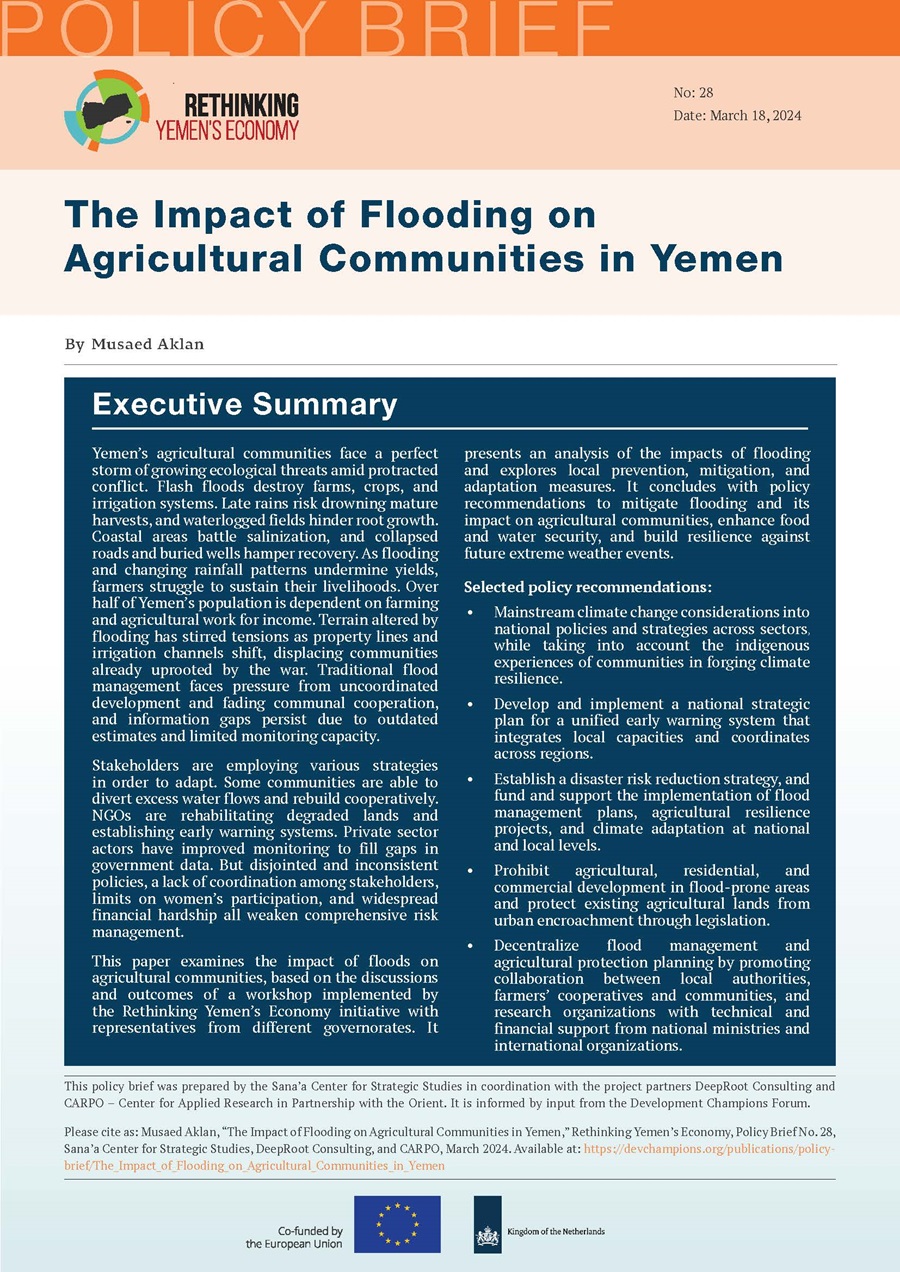
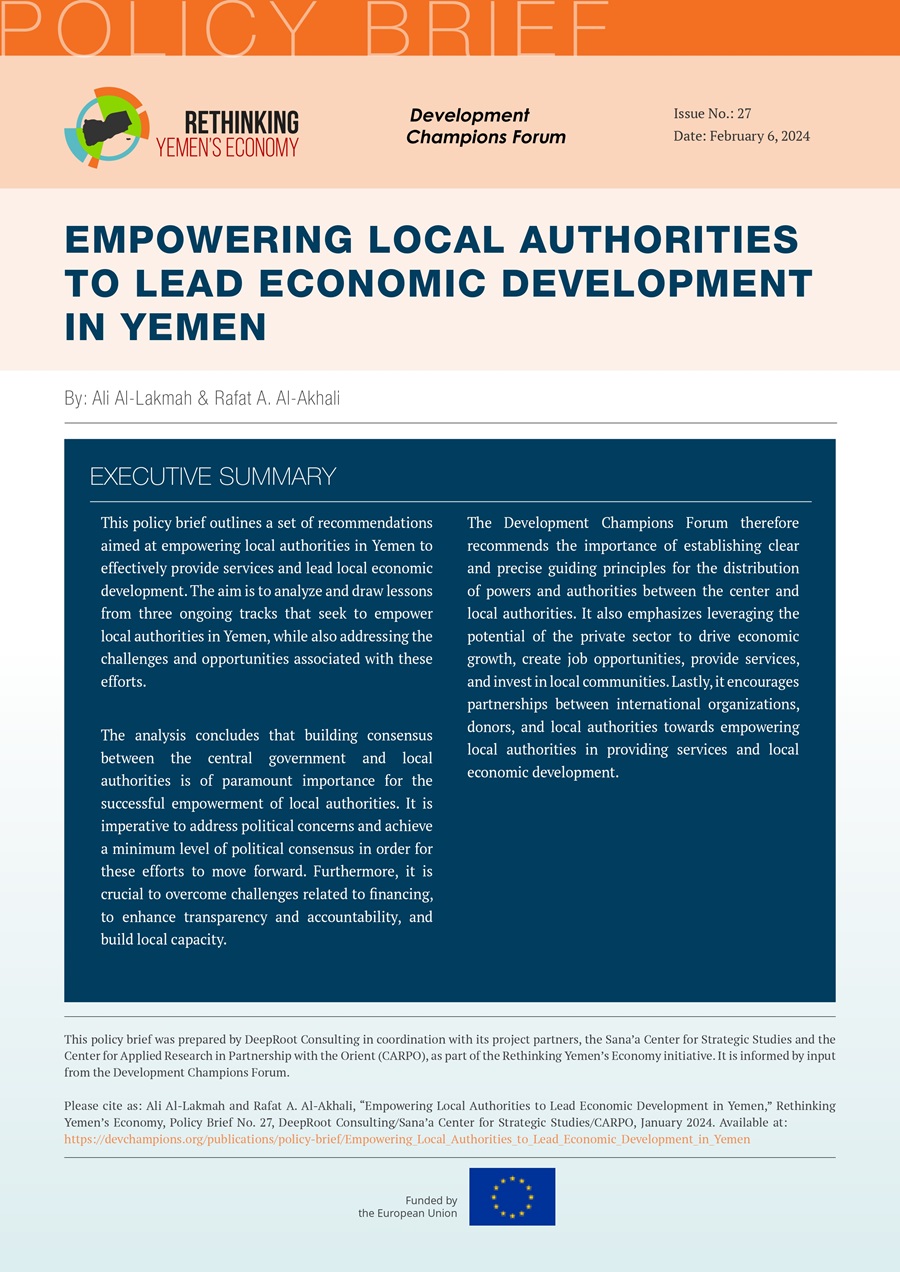
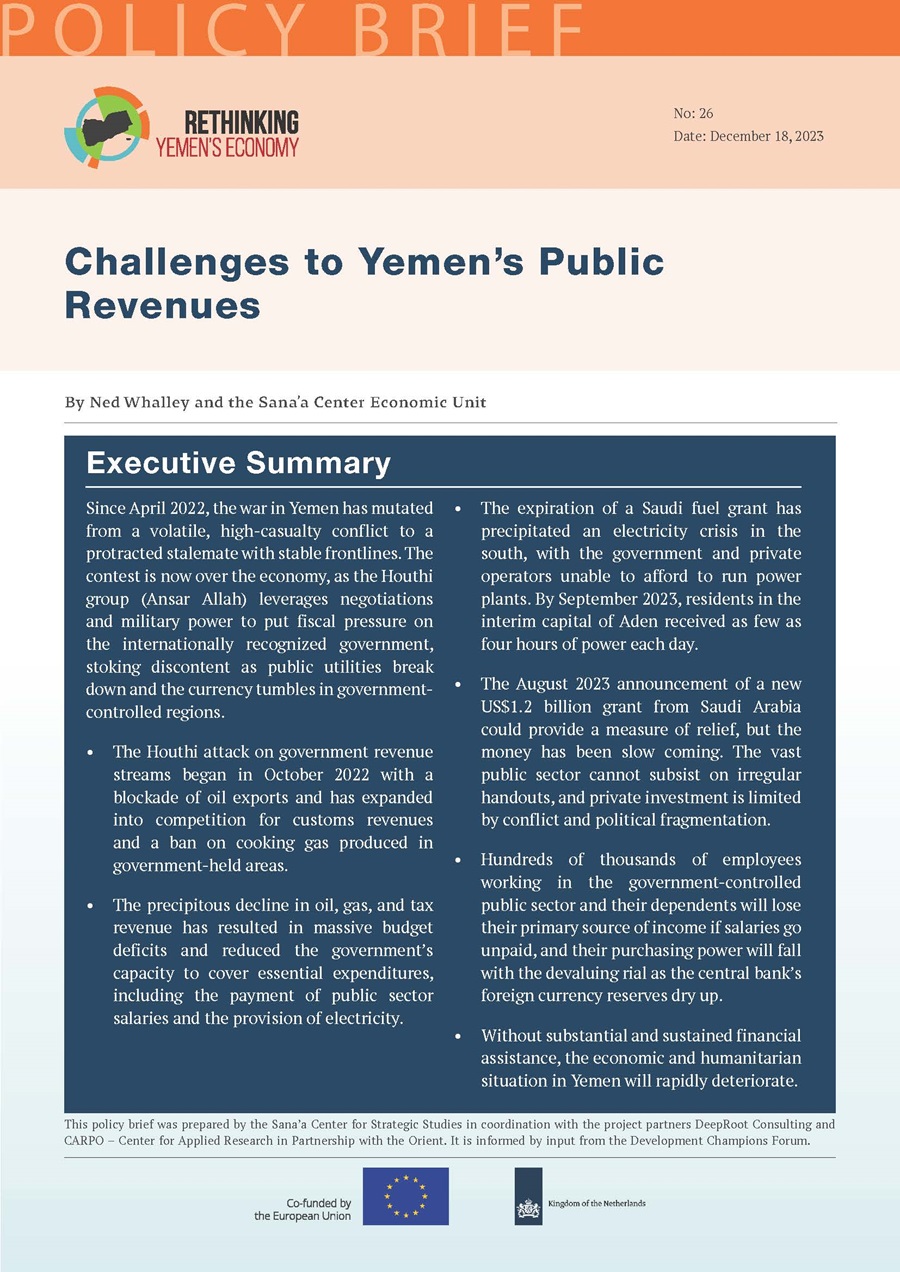
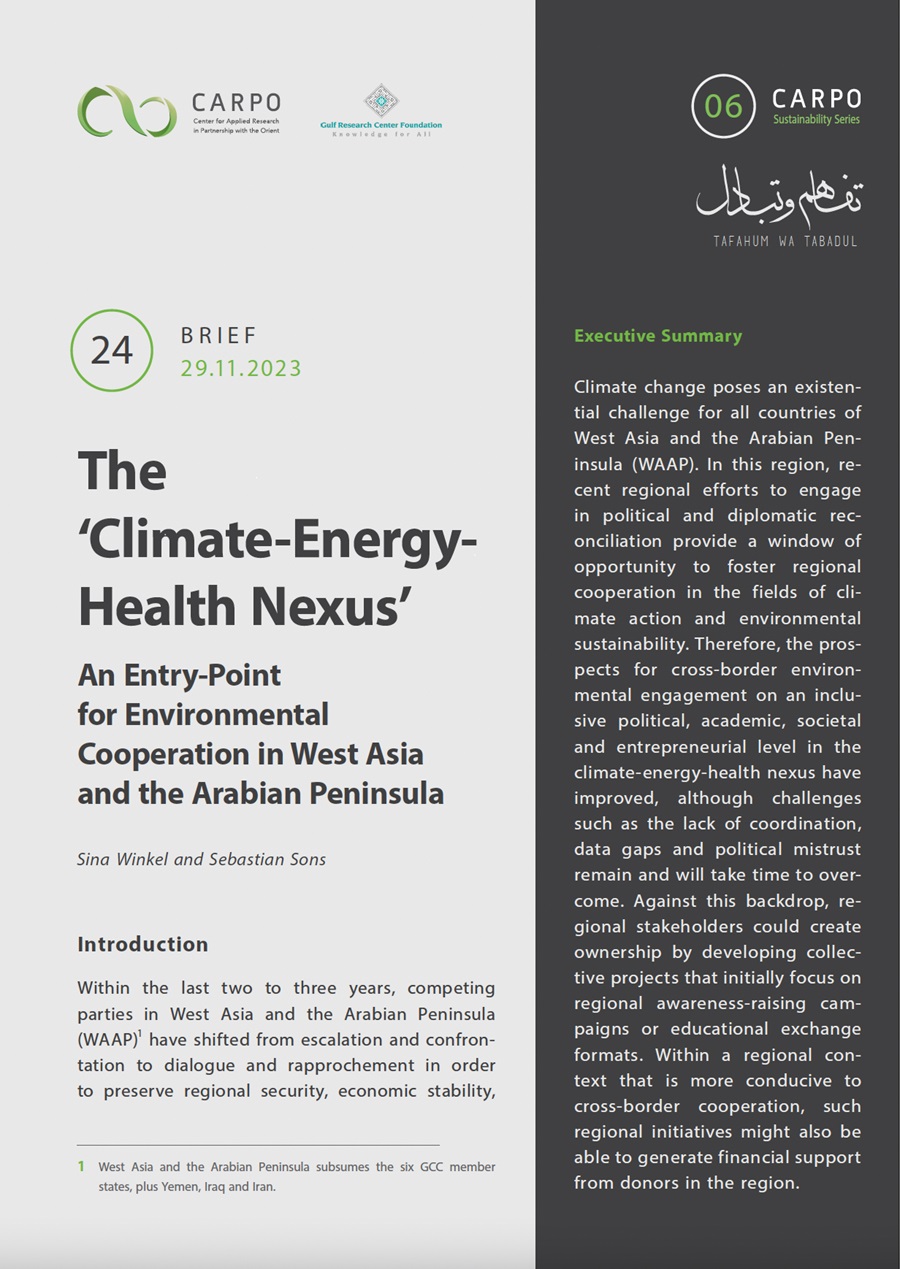
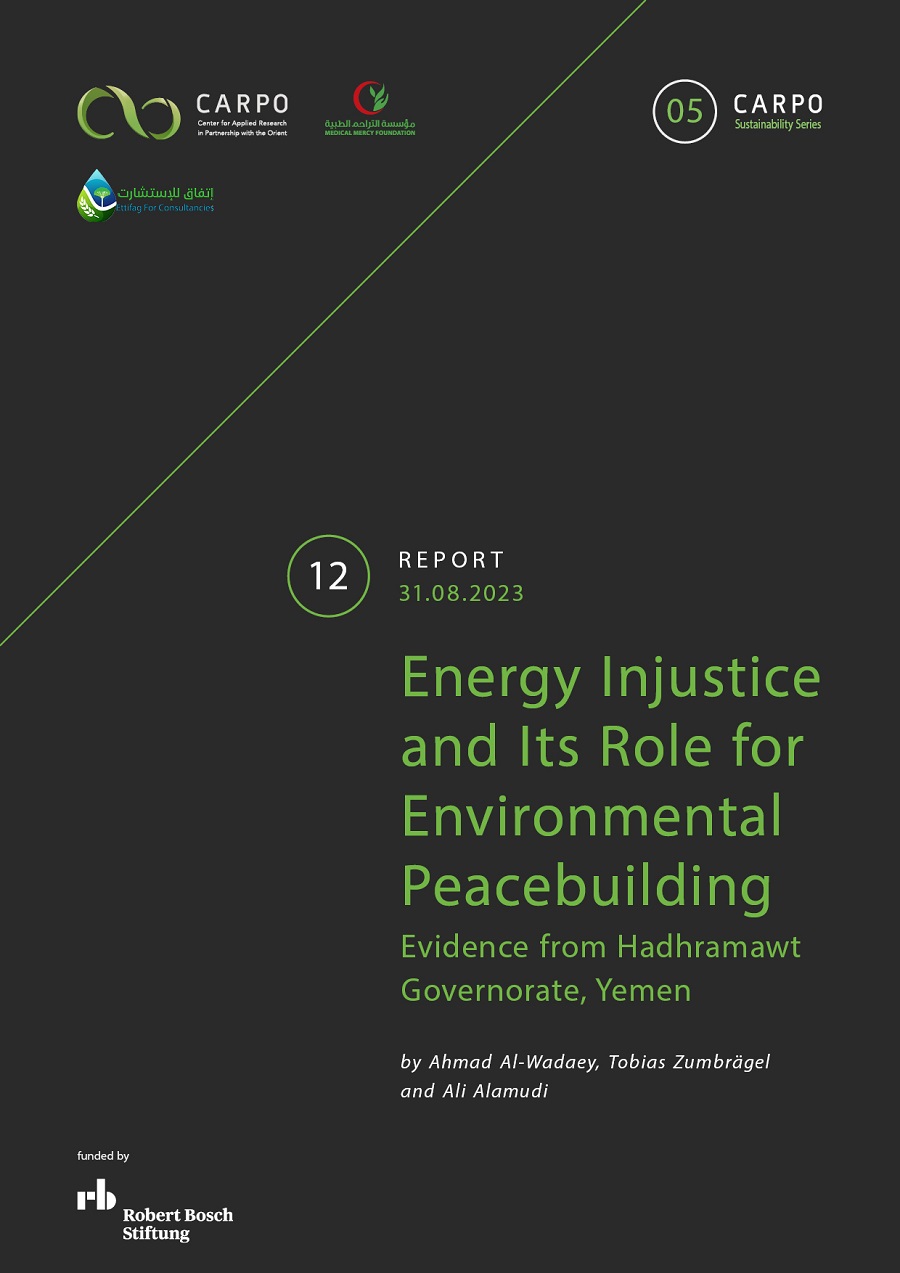
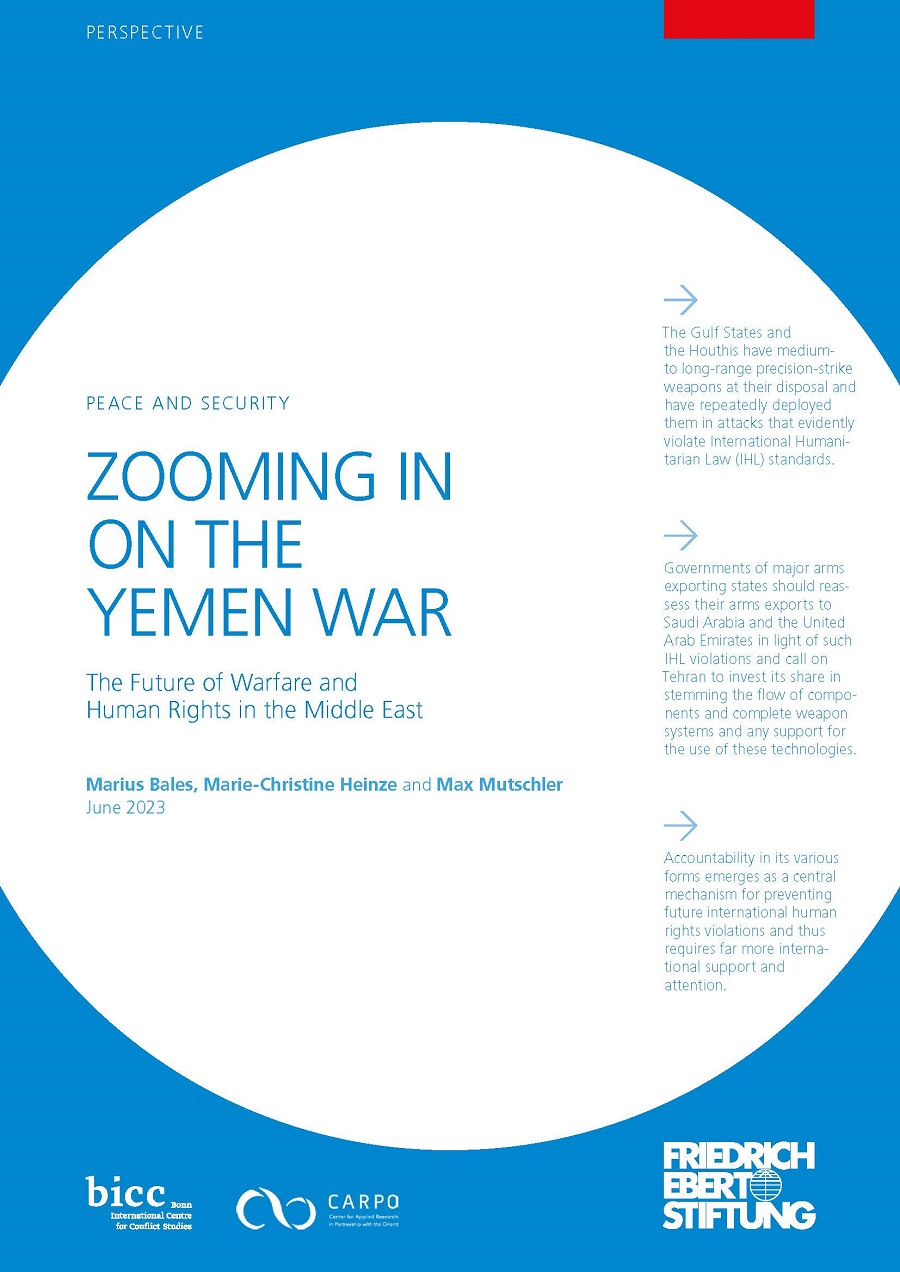
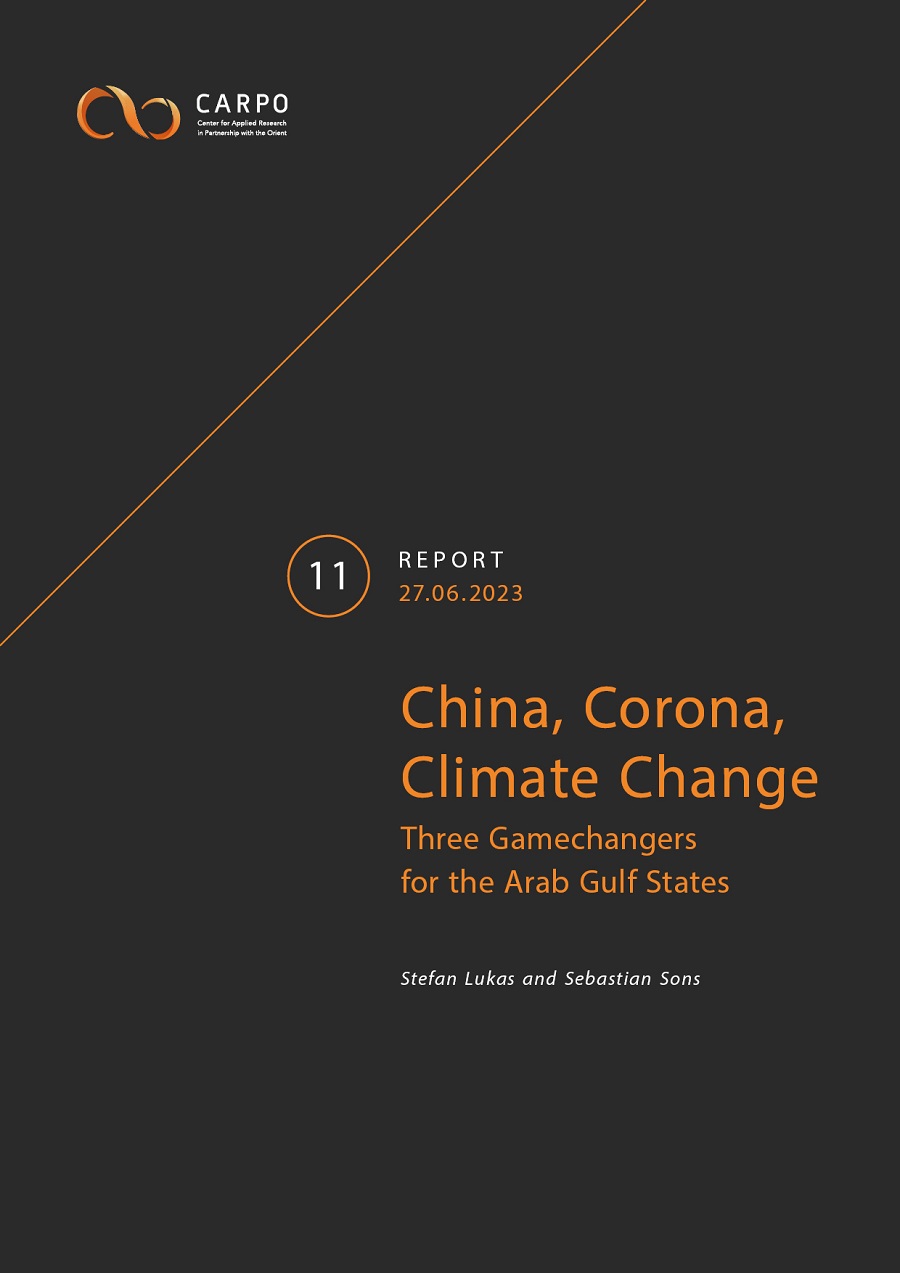
![Research Cooperation with the ‘Global South’ [in German]](https://carpo-bonn.org/wp-content/uploads/2023/03/carpo_policy_report_10_0323.jpg)
